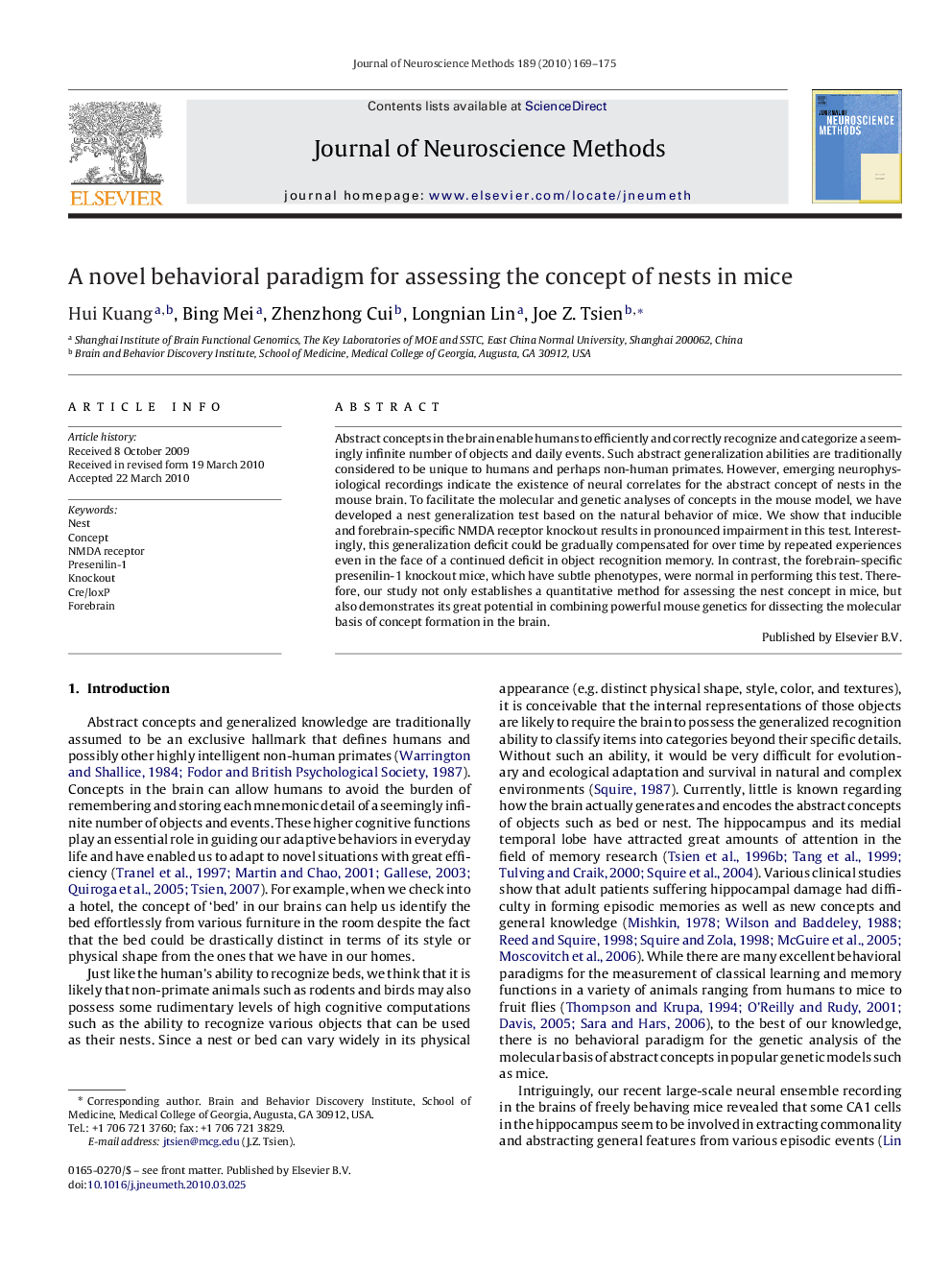| Article ID | Journal | Published Year | Pages | File Type |
|---|---|---|---|---|
| 4335614 | Journal of Neuroscience Methods | 2010 | 7 Pages |
Abstract concepts in the brain enable humans to efficiently and correctly recognize and categorize a seemingly infinite number of objects and daily events. Such abstract generalization abilities are traditionally considered to be unique to humans and perhaps non-human primates. However, emerging neurophysiological recordings indicate the existence of neural correlates for the abstract concept of nests in the mouse brain. To facilitate the molecular and genetic analyses of concepts in the mouse model, we have developed a nest generalization test based on the natural behavior of mice. We show that inducible and forebrain-specific NMDA receptor knockout results in pronounced impairment in this test. Interestingly, this generalization deficit could be gradually compensated for over time by repeated experiences even in the face of a continued deficit in object recognition memory. In contrast, the forebrain-specific presenilin-1 knockout mice, which have subtle phenotypes, were normal in performing this test. Therefore, our study not only establishes a quantitative method for assessing the nest concept in mice, but also demonstrates its great potential in combining powerful mouse genetics for dissecting the molecular basis of concept formation in the brain.
